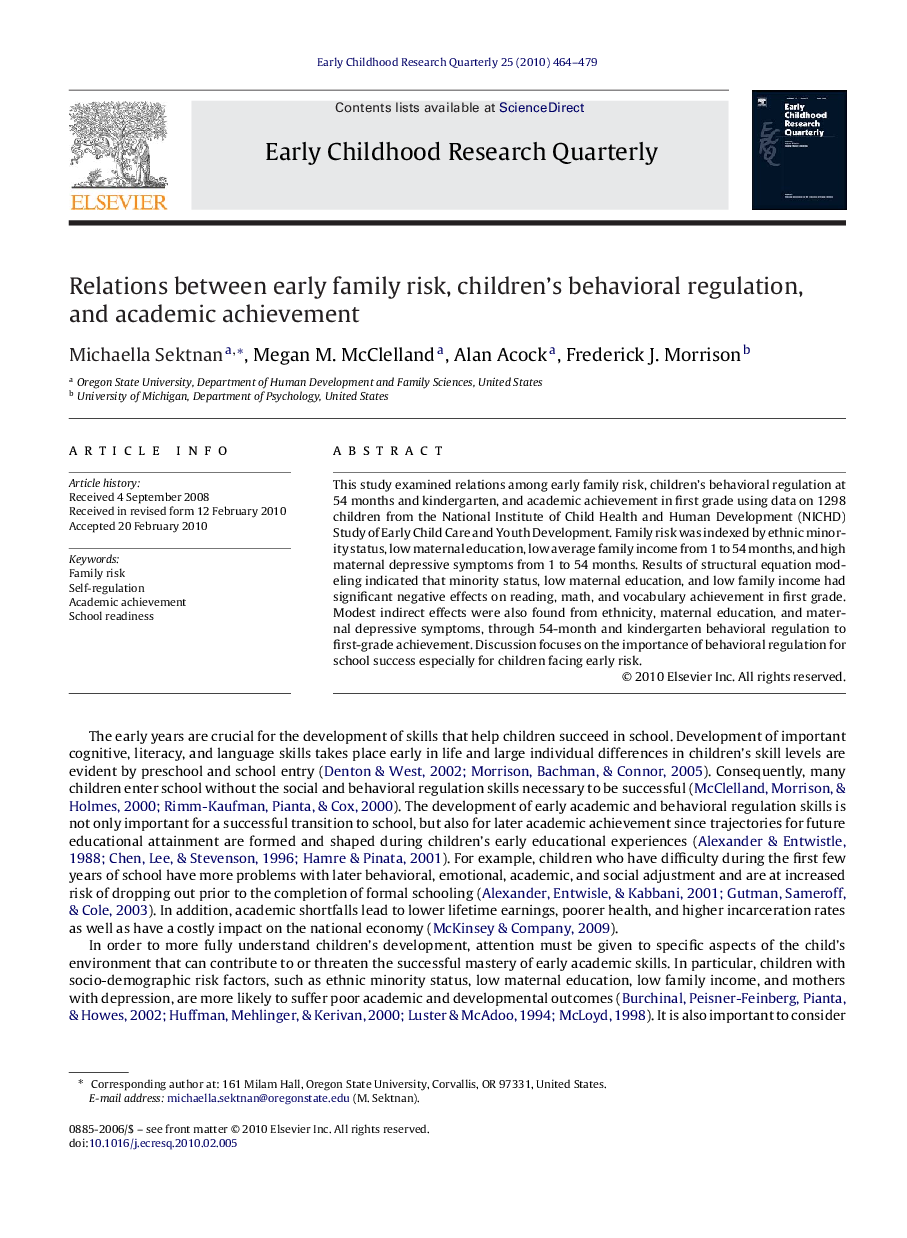| Article ID | Journal | Published Year | Pages | File Type |
|---|---|---|---|---|
| 354196 | Early Childhood Research Quarterly | 2010 | 16 Pages |
This study examined relations among early family risk, children's behavioral regulation at 54 months and kindergarten, and academic achievement in first grade using data on 1298 children from the National Institute of Child Health and Human Development (NICHD) Study of Early Child Care and Youth Development. Family risk was indexed by ethnic minority status, low maternal education, low average family income from 1 to 54 months, and high maternal depressive symptoms from 1 to 54 months. Results of structural equation modeling indicated that minority status, low maternal education, and low family income had significant negative effects on reading, math, and vocabulary achievement in first grade. Modest indirect effects were also found from ethnicity, maternal education, and maternal depressive symptoms, through 54-month and kindergarten behavioral regulation to first-grade achievement. Discussion focuses on the importance of behavioral regulation for school success especially for children facing early risk.
